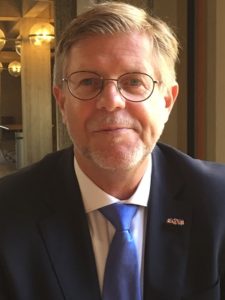
Health education: A Neglected Area of human rights

The poorest of the poor are the hardest to reach. They lack many of the basics for survival, such as food and water, but foremost among the basic human rights left unfulfilled is access to preventative health education. In many countries with fragile social systems, disadvantaged families and communities have nowhere to turn for even the most elementary knowledge about how to care for themselves and others. This gaping hole in the inter-generational transfer of knowledge puts people at risk for their lives and livelihoods, and dooms them to the underclass of the world’s poorest.
But this cycle can be broken. Evidence from the work of Health Promotion South Africa, and others, demonstrates that when people are given health education their health and the health of those around them improves. Preventive health education is often called a neglected area because the vast majority of health resources are devoted to curative rather than preventative approaches. Investments in non-communicable diseases are as low as 1% of total healthcare financing. This situation occurs despite the proven cost advantages of stopping diseases before they start and early identification of whatever the problem is. The old adage is true: an ounce of prevention is worth a pound of cure.
Health education is also a human right. It is enshrined in the International Convention on Economic, Social and Cultural Rights; the UN Convention on the Rights of the Child; the African Charter on Human and Peoples’ Rights; the European Social Charter; and many national Constitutions across the globe. Yet, when policy-makers take up the human rights-based approach to development, health education commonly comes far down on the list of priorities. There is much attention to water, for example, when people don’t even know that by not washing their hands they are spreading lethal diarrhoea. There is much attention to food as well, when countless people have never learned the value of nutrition and the lifestyle habits needed to prevent obesity.
Governments have a responsibility to protect health (e.g. stopping air pollution); prevent sickness (e.g. vaccinations); and promote health (e.g. anti-smoking policies). However, as is widely acknowledged, governments fail on a regular basis at both collective and individual prevention. And ultimately, it should not be up to governments to carry the entire healthcare burden: ordinary people need to be empowered to take care of themselves. This starts with knowing what to do, from the cradle to the grave, from the crèche to the school to the workplace, in a lifelong process of health education.
Health Promotion South Africa has shown that a small investment in preventative health education can produce life-changing results. It is a simple concept to understand, but not so simple to carry out in practice. HPSA’s methods have shown that a combination of international financing and local commitment of time and energy can create champions for health and lasting positive ripple effects in people’s lives. Once empowered with such an education, and with access to follow up information, trained health promoters advance the level of development of their communities, their economies and their society as a whole.
Prof. Dr. Jeff Balch, Director International Development HPSA

